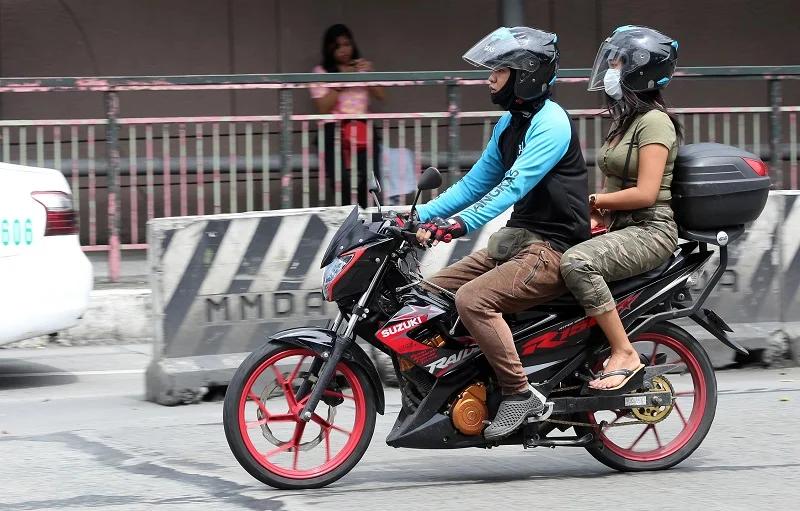Despite assurances by the Land Transportation Franchising and Regulatory Board that expanding motorcycle taxis would not endanger the livelihood of public utility vehicle (PUV) drivers and operators, still the outrage against MCTs become noisier by the day, at least a month leading to the final completion of the pilot study on MCTs by the Technical Working Group headed by the LTFRB chair.
Motorcycle taxis do not represent a direct threat to the livelihood of other public utility vehicles (PUVs) like jeepneys and tricycles, said LTFRB chair Teofilo Guadiz III since the client base of MCTs is different from that of traditional PUVs.
"Motorcycle taxis cater to individuals in a hurry, commuting directly from their homes to offices,” Guadiz said earlier.
But “jeepneys have a distinct client base, providing transportation from one terminal to another,” wrote One News in early March.
The planned motorcycle taxi services– a program designed by LTFRB following the completion of pilot study of TWG– is meant to address the proliferation of unauthorized MCTs transporting passengers without a permit.
Once the study is completed by May, the LTFRB will submit its draft to Congress on MCT operations and it is up to Congress whether to adopt or not the LTFRB recommendation.
At least 8,000 more slots were authorized by the LTFRB, Guadiz told Star over the weekend. Guadiz, who heads the TWG, is assigned to carry out the pilot study of motorcycle taxi services in the Philippines.
The motorcycle taxi service has trained drivers, assures that passengers are also insured and address severe traffic congestion, he said.
At present, there are 51,000 motorcycle taxi slots in Metro Manila.
Various transport groups have appealed to President Ferdinand Marcos, Jr. to stop the expansion of motorcycle taxis in Metro Manila.
The Coalition of Transport Sectors (CTS) urged Marcos to order the LTFRB to expand MCTs outside the National Capital Region only, where the adverse effects of traffic congestion might be less severe.
The House of Representatives committee on Metro Manila development has pushed for a moratorium on additional players in the motorcycle taxis.
Guadiz reacted to the statements of the CTS and other groups who want LTFRB to review its policies on MCTs and to stop accrediting new MCT operators, claiming that the relatively new transport mode poses a threat to their livelihood.
Since there is yet no law regulating MCTs, they are considered technically not legal yet but some operators like Angkas, JoyRide and Move It are allowed to operate under a pilot study that began in 2019.
But the LTFRB is finalizing the accreditation of several new MCT companies to encourage competition in the industry.
Before the pandemic, Congress tried to come up with a law legalizing the MCTs. Transport Secretary Jaime Bautista had called on the legislators to hasten deliberations on the MCT law to enable the government to regulate the sector.
President Marcos and Speaker Ferdinand Martin Romualdez have shown support for MCTs for their contribution in easing the transport backlog, creating jobs and business opportunities and for the benefits on commuters.
Rep. Romeo Acop, chair of the House Transportation Committee, earlier cited the need for a comprehensive approach in finalizing legislation on MCTs as he acknowledged the commuters’ preference to take the ride hailing apps because of their affordability, convenience and considering the lack of an efficient public transportation option.
Acop stressed the legislative priority of the House in finalizing the motorcycle-for-hire law.
#WeTakeAStand #OpinYon #LTFRB #PUVs #MotorcycleTaxis

